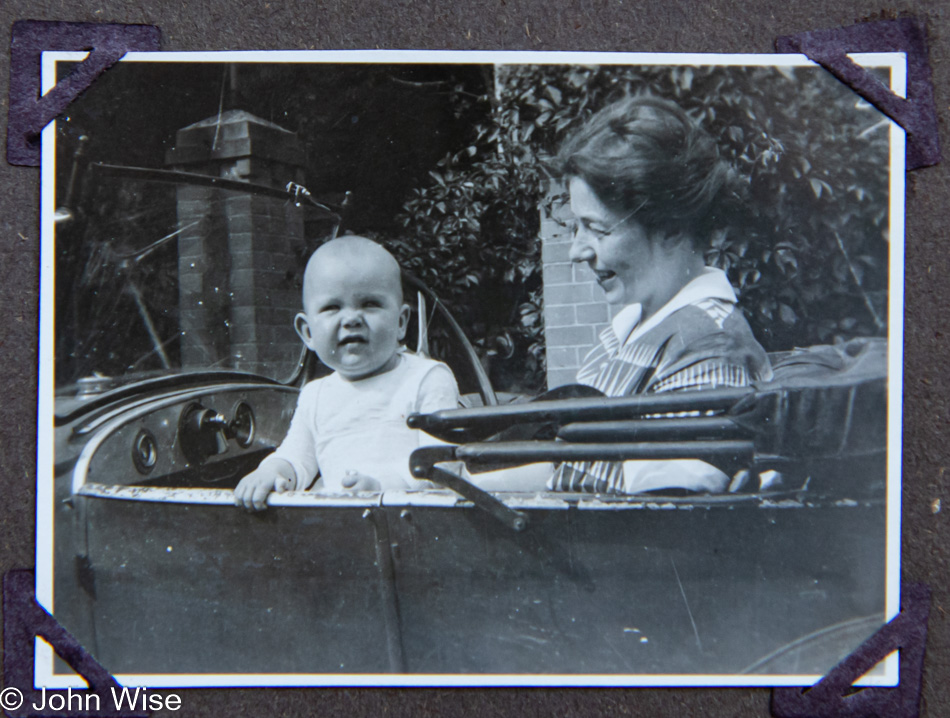
After cataloging a number of Jutta’s earliest photos, I turned to my mother-in-law to go through some old albums of those I couldn’t identify. This next part of Day 21 focuses on her older brother, who was born Friedrich-Wilhelm Georg Linnenkohl but went by Friedhelm.
This is Friedhelm, at only two years old, getting a taste of the family BMW with Mom.
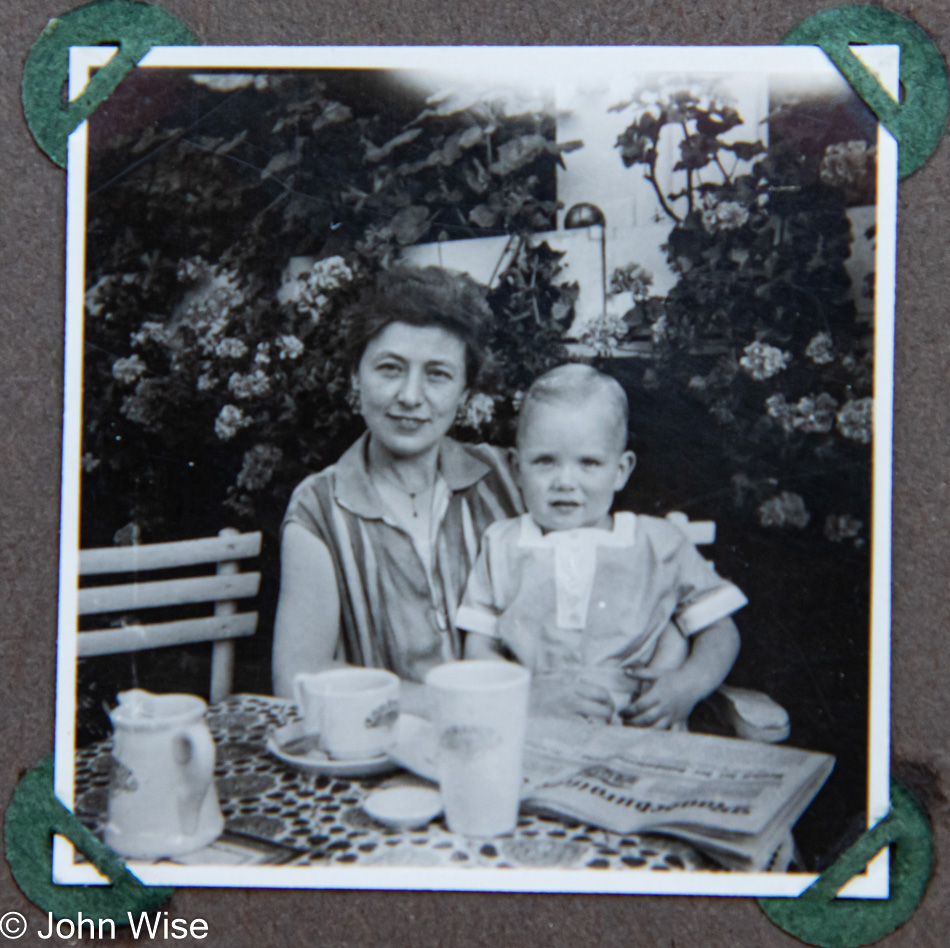
Friedhelm was born on the 23rd of September 1925 and lived a very short life of just 19 years due to war. This photo of Helene “Lenchen” was taken in the garden at their home in Niederndodeleben before moving to Magdeburg. Prior to Friedhelm being born, Lenchen and Wilhelm lived in Schnarsleben, which proved to be too small for Lenchen who was originally from Hannover. The area around Magdeburg is full of small hamlets with names ending in leben.
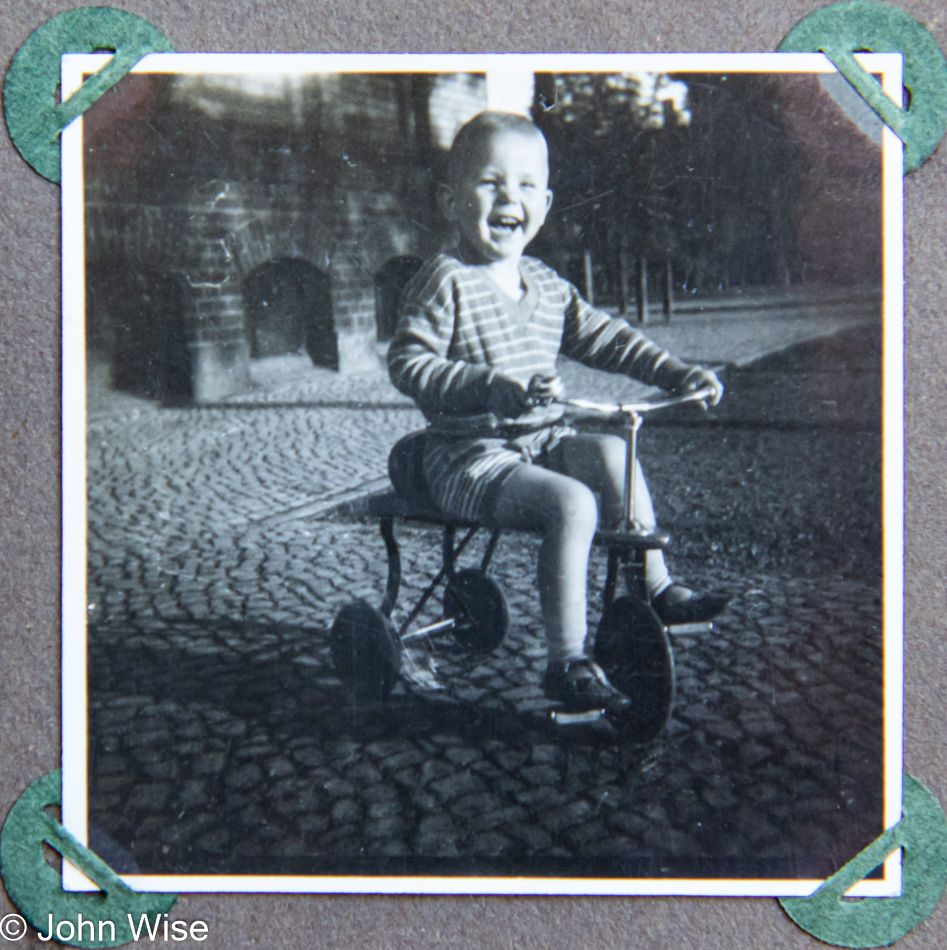
Then, two years later, he resigned himself to learning to drive his very own tricycle. This wasn’t just any tricycle this was a bike with a Klingel (bicycle bell), and if Jutta had ever saved something that would have been important to me, it would have been that Klingel.
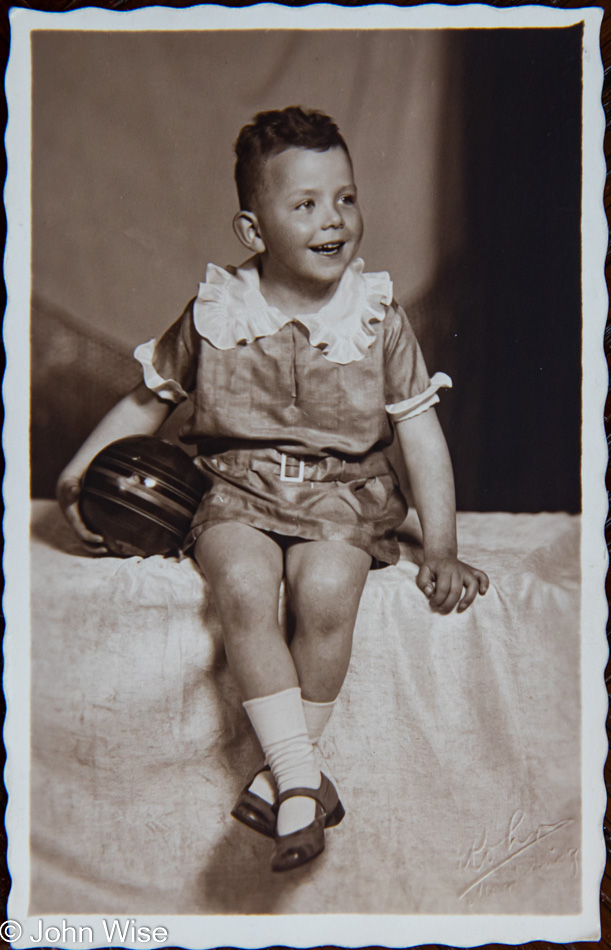
There’s nothing like walking through someone’s life that ended so early with his sister. It’s a strange thought that this boy, who was barely a young man, could theoretically be sitting here with us today at 96 years of age. Friedhelm is technically not wearing a dress (although that was not uncommon for toddlers); it was called a Kasack, which Jutta also says is similar to the old Russian military uniform and was also fashionable in the United States in the 1900s. It was referred to as a “Russian blouse.”

Grandma Frida Vespermann and Friedhelm Linnenkohl in Magdeburg, Germany, in an early color photo. Once again, you can see the old Rauchtisch or smoking table. The urn-looking thing on the table is a Rauchverzehrer or “smoke dispeller,” an electrical appliance intended to help clear the air of tobacco smoke.
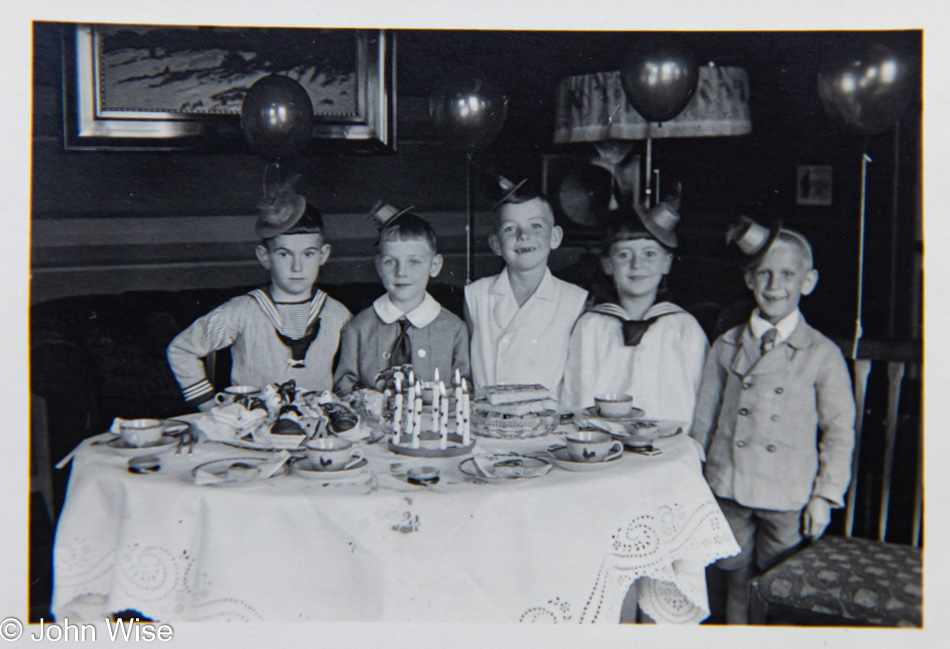
By his 7th birthday, he’s celebrating with friends seen here in 1932. These small hats were popular in the German holiday of Fasching or Fastnacht, which is a Catholic holiday of fasting before Easter. Fasching can also be referred to as Carnival.
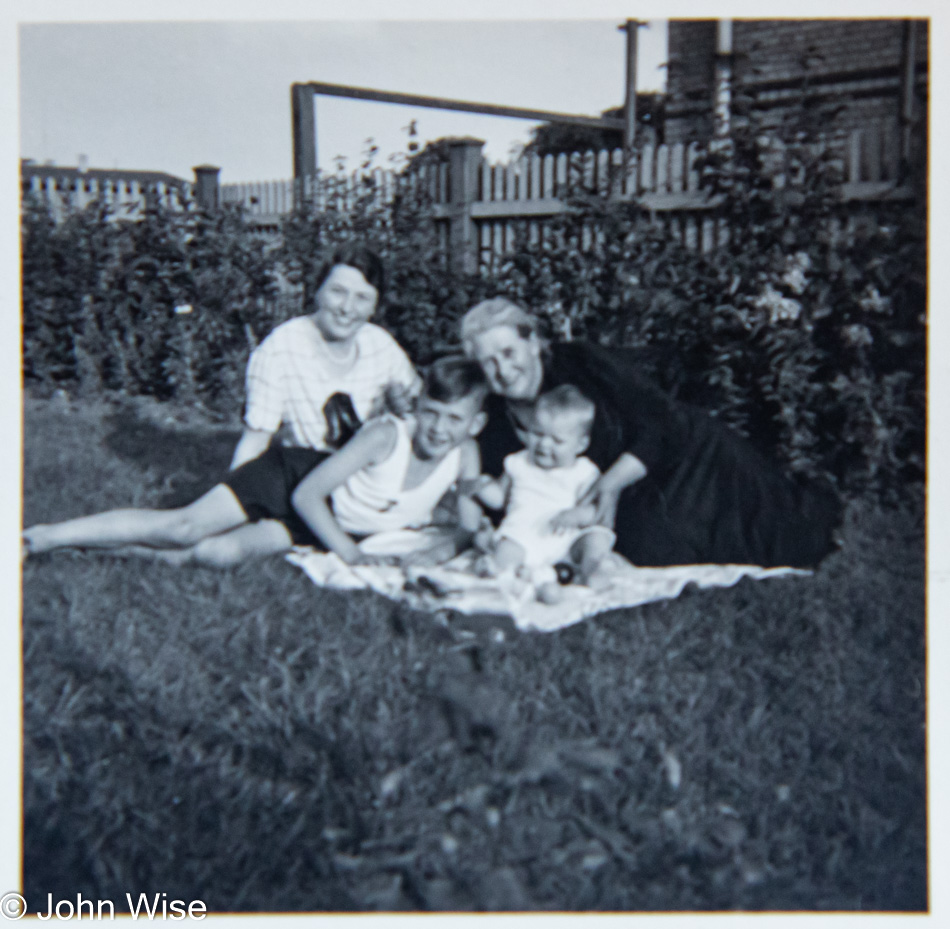
Friedhelm with his new sister Jutta, his mom Lenchen, and Aunt Auguste Brünig from Wilhelm’s side of the family (one of the aunts who contributed their name to one of Jutta’s many first names). Auguste was from Hamburg, Germany, but also lived in Tanzania, Africa, where her husband ran a farm. After the English took Tanzania following World War I, Auguste and her husband were taken to India as prisoners.
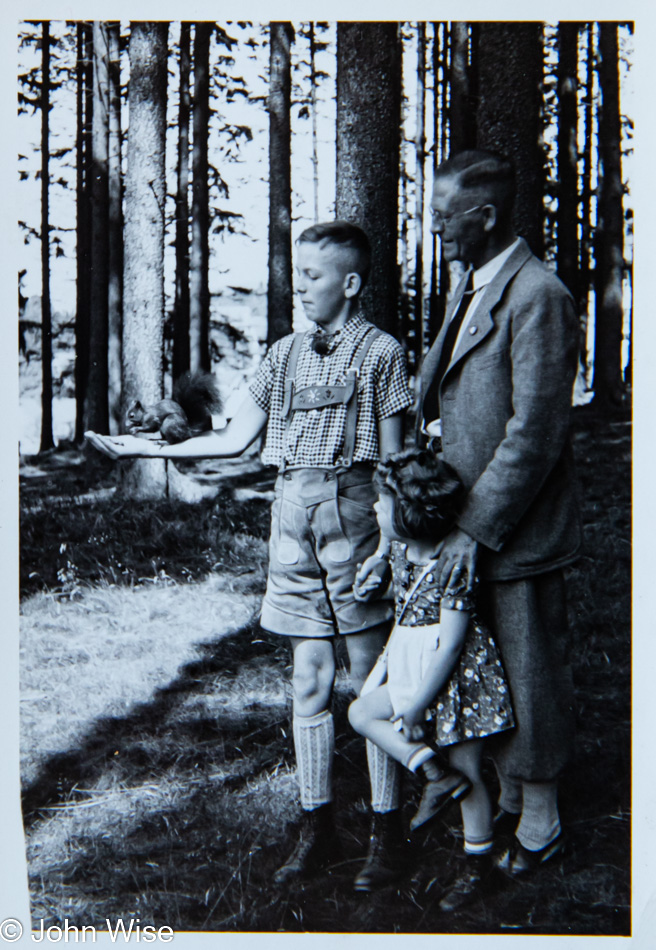
Those German forest squirrels were well-trained to crawl on humans who had nuts in their hands. Friedhelm was in the Harz Mountains in Landheim with his schoolmates, a school hostel in the country for English speakers, when he had an encounter with a half-blind dog that knocked him down and gave him a concussion. Jutta, Lenchen, and Wilhelm made a special visit to make sure that Friedhelm was okay.
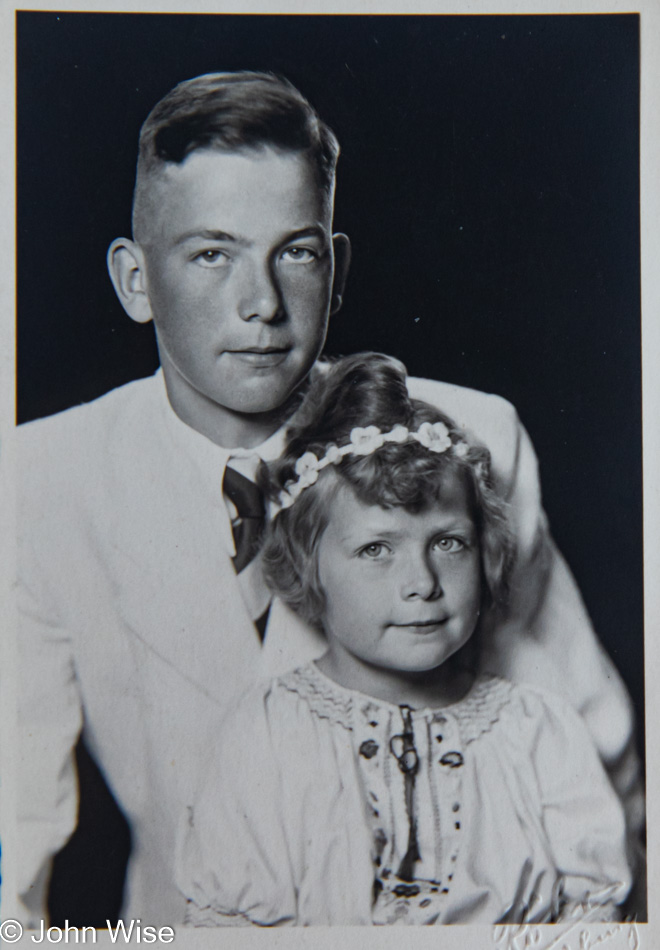
While there are many photos of Friedhelm with his sister, what is never seen is a girlfriend nor may have there ever been one.
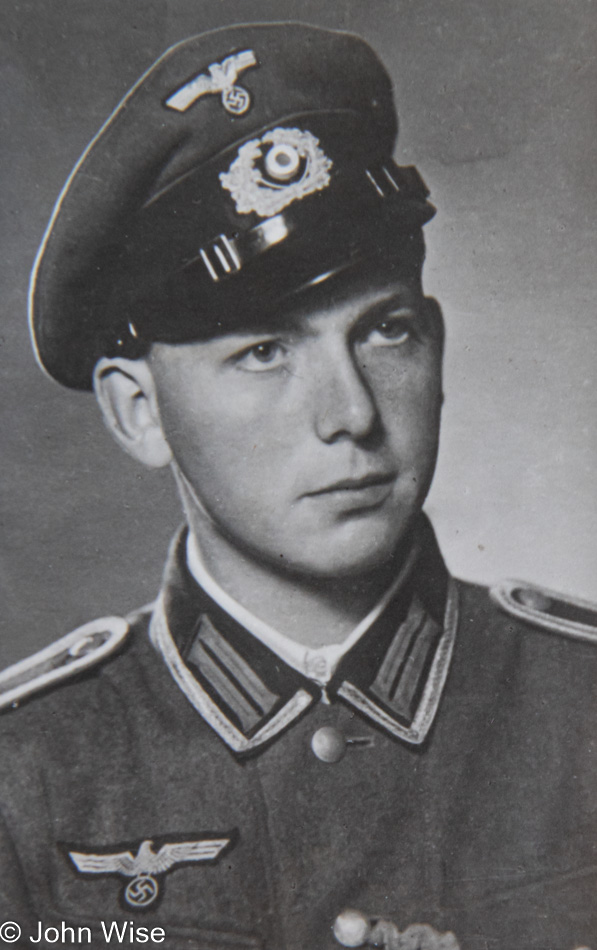
The entire time I’m learning about his younger years in Magdeburg and that his aspiration was to become a physician, I’m astonished by the crass willingness to throw lives away for a land grab that included the nefarious need to purge society of diversity. In chasing such a horrific banality, generations of people from all walks of life lost lives, property, loved ones, futures, culture, wealth, and all that is the most fundamental to what we’d call a good life.
Friedhelm died in Poland on the 29th of August, 1944.